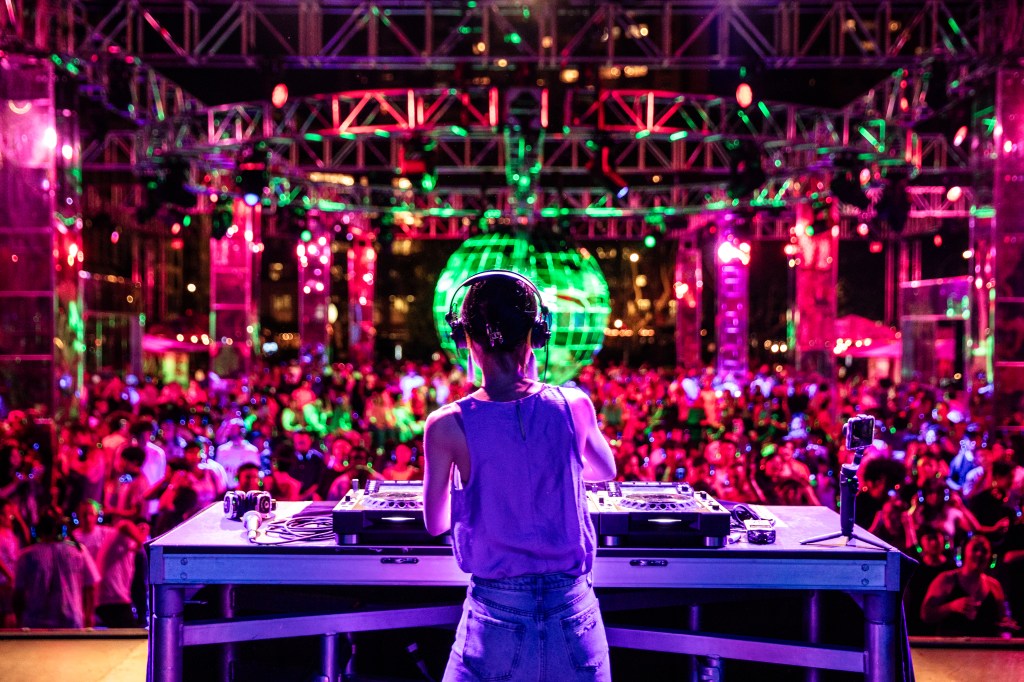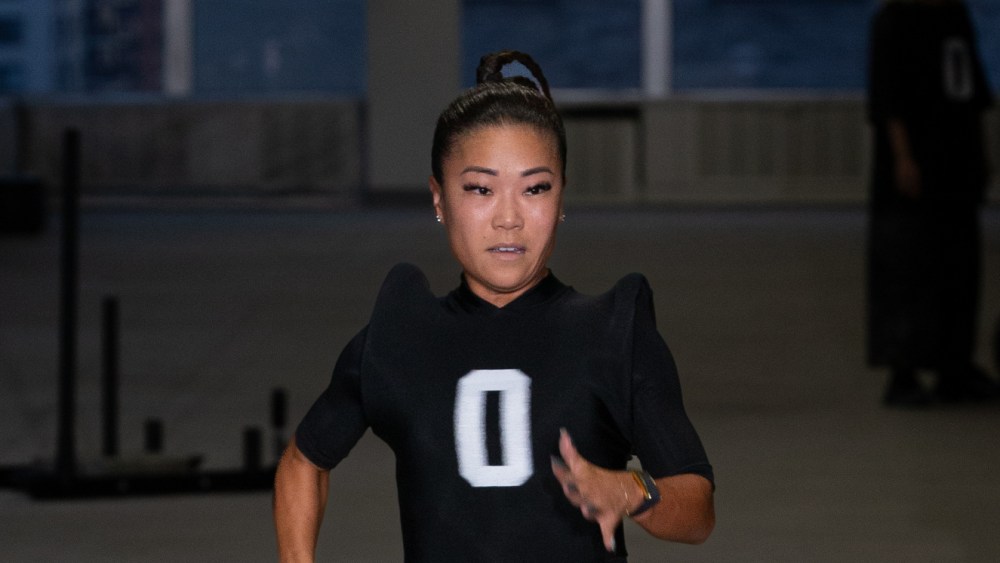Just as quiet luxury and stealth wealth have permeated fashion, a similar pursuit of serenity is rippling through travel trends and off-hours activities.
Discreet retreats; soundless dance parties; silent book clubs; digital detoxes; children-free resorts; bare-bones convent and monastery stays; cellphone-free concerts, and nature-driven adventures are some of the ways that consumers are seeking peacefulness off-hours. Even “hush trips” — as in remote workers vacationing without telling their bosses — are more than a passing trend. In a recent survey, 44 percent of Gen Z WFHers said they had taken one.
But there is no standard profile for the road less taken. Quiet Parks International’s cofounder Gordon Hempton says, “There is not a particular type of person who seeks quiet. Assumptions like the young are happy making noise and the old have quiet from hearing loss are not true. Literally everyone seeks quiet, whether they realize it or not. We need the opportunity to think our own thoughts, feel our own feelings and come up with our own conclusions about the meaning of life.”
The quietness caused by the pandemic shutdown was initially unsettling for many, according to Hempton, an acoustic ecologist whose nonprofit doles out quiet awards and virtual experiences. After recognizing the health benefits that accompany calm, many people started seeking the closest quiet places possible, he says. Along with noise, they increasingly want to be free from visuals and noxious odors. Ecuador’s Zebola River and America’s Glacier National Park rank as quiet wilderness parks and Taiwan’s Yangmingshan National Park and London’s Hampstead Heath qualify for quiet urban ones, according to QPI.
Erling Kagge, the first person to reach the North Pole, the South Pole and the top of Mount Everest by foot, can relate. “Silence is about rediscovering, through pausing, the things that bring us joy,” he says in an email.
Chalking up the shift toward more peaceful pursuits to the fact that “humans hardly pause any more,” he says, “We are always accessible, and almost always busy.”
Noting how philosopher Martin Heidegger once wrote, “’Everyone is the other, no one is themselves,’” Kagge says, “People tend to sit in front of a screen — whether alone or together with others. I do it too — become engulfed in my smartphone, enslave myself to my tablet as a consumer and at times as a producer. I am constantly interrupted, interruptions engendered by other interruptions. It feels like trying to find your way through fog on a mountain, without a compass at hand, and ending up walking around in circles. The goal is to be busy and effective, nothing else.”
As a publisher, the fact that he has sold “hundreds of thousands” of books about knitting, brewing beer and stacking wood reflects consumers’ quests for quietude. “A great many of us have a desire to return to something basic, authentic, in order to find peace, and to experience a small, quiet alternative to the din,” Kagge says. “Simply knowing that I am not going to be interrupted, and for once having an explanation why I wish to be alone with my task, is a wonderful luxury.”

Tapping into that, Ulko-Tammio, an island in the eastern gulf of Finland, started encouraging visitors to ditch their cell phones this summer so they can be unreachable as they roam or cycle across the archipelago. “There’s been a tremendous amount of interest in the concept,” according to Visit Kotka Hamina’s Annika Ruohonen, who hopes that the idea will spread so that more people will dive into nature without being distracted by their digital devices.

Performers like Bono, Bob Dylan, Kevin Hart, David LaChapelle, Jack White, Garth Brooks, Lane 8, Maxwell and the R&B group Tony! Toni! Toné! also see the upsides of a phone-free space — albeit at their performances. With the help of the Los Angeles-based company Yondr, they are requiring attendees to check their phones before the lights go down. Indicative of the interest, Yondr now services more than 1 million guests monthly as opposed to the monthly average of about 300,000 in 2019.
As for how it changes the experience, Yondr’s director of music and events Dawson Ludwig, says, “Obviously, I’ve drank the Kool-Aid. It changes the chemistry in the room. There’s something that happens when collectively everyone has their phones down. All of that attention on the artist makes for a much better show. It’s much more electric, and a good artist can control that and have a field day.”
For comedians, content protection is a primary driver, and a rapt audience allows them to map a joke from the set-up to the punchline, he said. For musicians, it’s more a matter of being in a sacred space where someone is performing and providing them the attention they deserve, according to Ludwig. All in all, performers that work with Yondr know their art is for the ages. “They long-tail the event, and understand what they’re creating in that space doesn’t need to be cheapened for a flash-in-the-pan social media moment,” Ludwig said. (Of course, given the recent spate of audience members throwing things, including mobile phones, at performers on stage, safety is a factor too.)
The on-site phone storage can create some confusion initially with attendees, but “they get into the idea of being free for a little bit and enjoy themselves,” Ludwig says. “One of the reasons for the popularity is the underlying desire to create some boundaries with technology.”
Concerts comprise half of Yondr’s business, and schools account for the other half. The sphere is expanding though, as Yondr also services weddings, birthday parties and courts. The sporting life is a relatively open field, too, even on the hushed greens of a championship pro tournament. The Masters Tournament at Augusta National Golf Club prohibits patrons from having their cell phones on the grounds. Patrick Kravitz, an Augusta National spokesman, declined to discuss the upsides of that.
The appeal of peacefulness isn’t always solitary, though, as attendees at some of the “Summer in the City” silent discos at Lincoln Center in Manhattan can attest. This summer between 1,000 and 1,500 people hit “The Dance Floor” there with headphones playing the music of live DJs. Twenty-four silent discos were held — twice as many as last year. Post-pandemic, silent discos caught on in part because revelers liked keeping some distance from each other. By wearing headphones to hear the live music, each person adjusts their own sound levels — another plus for many. DJ Gamma Vibes said, “Silent discos totally change the vibe, by letting you dance to your own groove while still jamming with a crowd. It’s like hanging out, but with a solo twist.”
Such collective individuality is also thriving via the Silent Book Club, which now has 400 chapters across 47 countries with the U.S., India and Italy having the most. Started in 2012 by Guinevere de la Mare and Laura Gluhanich, the premise was to get away from your house and your family, and meet up at a bar to just get together to read whatever you want. These regular reading dates helped dissolve any guilt that de la Mare might have felt as a mother with a toddler for sitting at home on a couch turning the pages while her husband was handling bath time or dinner. Forced book club discussions were also eliminated. The founders’ created a “grown-up version” of sustained silent reading, a form of recreational reading that some schools have adopted, de la Mare says.
So why not just stay home and read?
“What we say is, ‘Why not both?’ There is this real sense of camaraderie that comes from being in a shared space where other people are taking part in a collective activity,” she says. “Even if you’re quiet, just sharing in the experience of being out, being together and being in the locations. The chapter in Nashville meets at the Graduate Hotel that has this very cool lobby with cool art on the walls and cool furniture. It makes the experience of having an evening out much more accessible to people, who aren’t in their 20s and going drinking in bars. You get to have the experience of being out on the town while doing something relaxing. You don’t have to dress up and go clubbing or go to a fancy restaurant and spend a lot of money.”

The put-down-your-phone-pick-up-a-book concept gained ground during COVID-19 and afterwards the club offered “a nice bridge” for people who were hungry for social interactions but were out of practice, she says. Before an hour of reading, attendees might introduce themselves and what they’re reading, but they aren’t forced to make small talk or network, as they might at a work event. Catch-ups and conversations follow.
While the Hotel Byblos reopened in St. Tropez this spring with a renovated Sisley spa and a holistic program to encourage guests to step back from their fast-paced lives, the 750-acre Terre Blanche Hotel Spa Golf Resort in Italy debuted a detox program. While their fellow travelers loll by the pool, they learn routines that are designed to be used after their vacation ends. (De-toxers then rejoin their friends at dinner.) take part in a three-day ritual Others are seeking serenity by booking overnighters at convents, monasteries, and other religious-owned properties through platforms like Good Night and God Bless, which facilitates reservations for 200 properties, primarily in Europe and the U.K. Aside from being “inexpensive, clean, safe and well-located,” religious hotels offer “a fascinating glimpse into the daily lives and rituals of a religious community,” says operations manager Trish Clark said. With demand increasing, her insider tip is, “Book early to avoid disappointment.”
Their availability and subsequent popularity have both been sparked in part by necessity. While hospitality has long been a tradition of religious orders, many communities are struggling to maintain ancient buildings and are dealing with declining numbers of members, Clark says. In turn, unused rooms that once housed monks or nuns are being refurbished into suites, “with hairdryers and even flat-screen TVs,” she says. “Once dour refectories are now lively hubs of interaction and conversation.”

Popular locales include the Assumptionists-managed Auberge Adveniat near the Champs-Élysées, where 37 euros gets a bed in a dorm for a night and 94 euros secures a twin room for a night. In Nice, guests at the Hotel le Saint Paul can attend mass. Other travelers are opting for the Benedictine Abbey of Saint-Joseph de Clairval in the medieval village of Flavigny-sur-Ozerain. Fans of the movie “Chocolat” starring Johnny Depp and Juliette Binoche will recognize the scenery. The abbey has developed its own following as “a spirit-renewing destination for meditation, retreat and quietude,” Clark says.
All in all though, silence is more of an idea or a notion from Kagge’s point of view. “The silence around us may contain a lot, but the most interesting kind of silence is the one that lies within — a silence each of us must create. That is not a trend. That is the meaning of your life,” he says.



